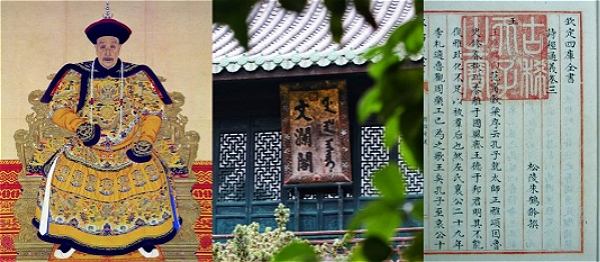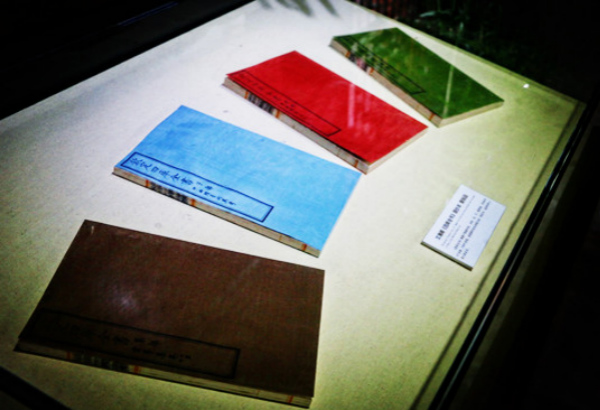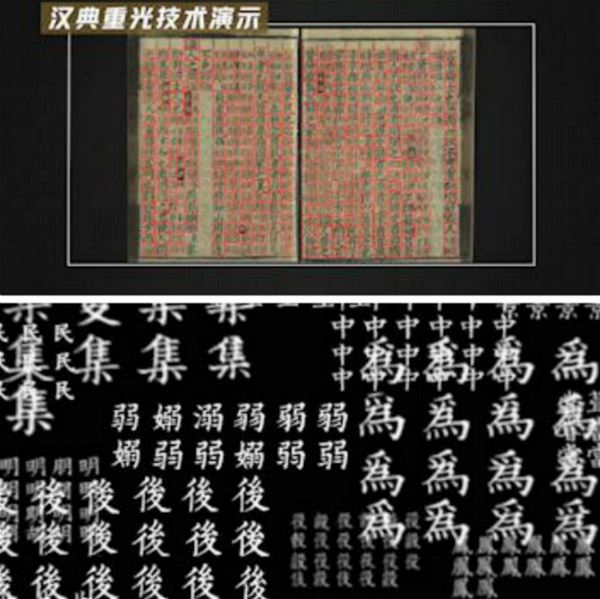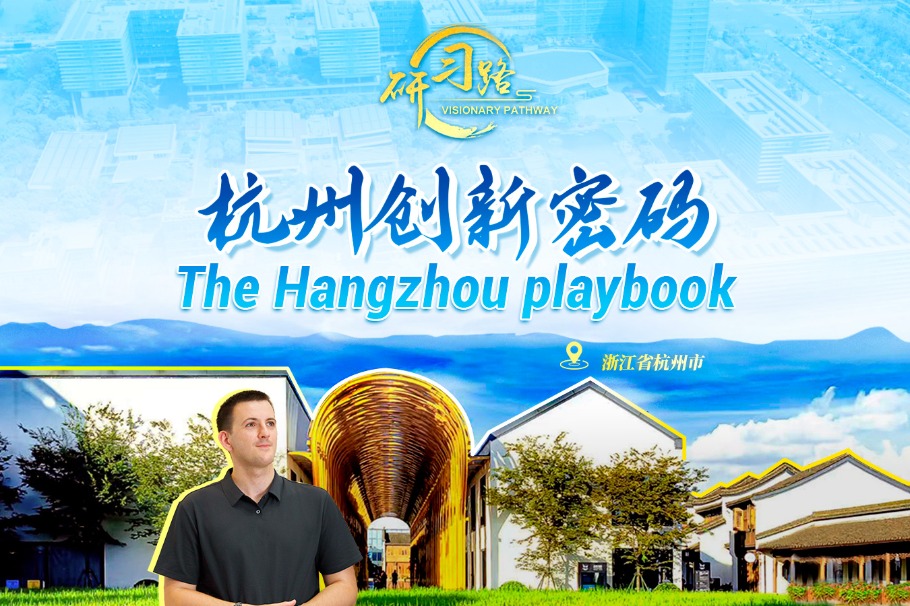Digital technology brings lost volumes of classics home

From left to right: Emperor Qianlong (1711-99) of the Qing Dynasty, today's Wenlan Chamber, and Hangzhou's handwritten duplication of Si Ku Quan Shu, sealed by the emperor. [Photo/hangzhou.com.cn]
The lost volumes of Hangzhou's handwritten duplication of Si Ku Quan Shu, also known as Complete Library in the Four Branches of Literature, were recently restored in Hangzhou, local media reported on June 4.
Si Ku Quan Shu was compiled in four sections, namely Jing (Confucian classics), Shi (historical records), Zi (philosophical writings), and Ji (miscellaneous works) by more than 3,800 scholars under the directives of Emperor Qianlong (1711-99) of the Qing Dynasty.
The collection contains over 79,000 volumes, 36,000 books, and around 800 million characters. Upon completion, Emperor Qianlong called for seven handwritten duplications, which were then stored in different locations, including Hangzhou's Wenlan Chamber, which is known as the world's earliest public library.

The handwritten duplication of Si Ku Quan Shu is on display. [Photo/hangzhou.com.cn]
The Wenlan Chamber duplication was lost when armies of the Taiping Heavenly Kingdom (1851-64) sacked Hangzhou. The collection disappeared from generations of scholars' sight until some volumes were found in the library of the University of California, Berkeley.

Digital technology restores the lost volumes of Si Ku Quan Shu. [Photo/Hangzhou.com.cn]
Two years ago, Alibaba Group, Sichuan University, the University of California, Berkeley, the National Library of China, and Zhejiang Library launched a program to digitize over 200,000 pages of Chinese ancient books that have been lost overseas.
The pages were scanned and uploaded by the University of California, Berkeley to the Alibaba DAMO Academy. These pages contain hundreds of thousands of ancient characters not included in modern dictionaries.
The Alibaba DAMO Academy and Sichuan University combined their resources in machine learning, human-machine interaction, and ancient Chinese to develop an AI-enabled system that can input 1 million characters in 35 days. The system is 30 times more efficient than if its developers were to do the same work manually.
"Restoring Chinese classics is a joint mission of people with expertise in technology or culture," said Zhang Jianfeng, chief technology officer of the Alibaba DAMO Academy. The academy has donated the digital books, as well as the tools used in their digitalization.
The Alibaba DAMO Academy was founded by Alibaba Group in Hangzhou in 2017. Its name was often depicted as an avenue in the Shaolin Monastery. The project includes seven research labs in China, the United States, Russia, Israel, and Singapore.
-
Visionary Pathway - Hangzhou Playbook
July 15, 2025



